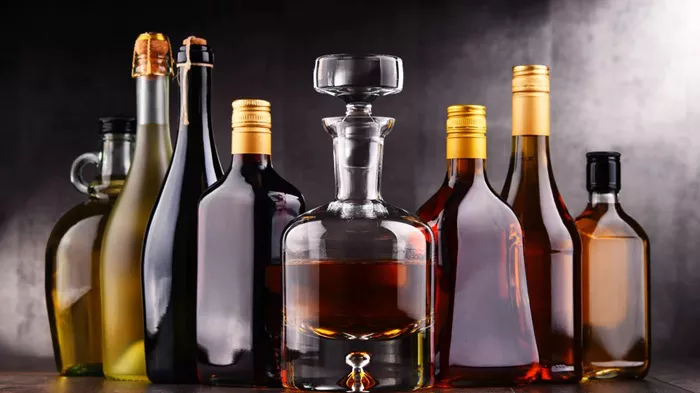In the realm of alcoholic beverages, few questions spark as much debate and confusion as the classification of vodka. Is vodka a spirit or liqueur? This seemingly straightforward query delves into the nuances of distillation, flavor profiles, and regulatory frameworks, inviting exploration and clarification.
Defining the Distinctions
Before delving into the intricacies of vodka’s classification, it’s imperative to establish clear definitions of what constitutes a spirit versus a liqueur. Spirits, often referred to as hard liquor, are distilled alcoholic beverages with a high alcohol content. They are typically produced through the distillation of fermented grains, fruits, or vegetables, resulting in a potent, clear liquid. Liqueurs, on the other hand, are sweetened spirits infused with various flavors, herbs, spices, fruits, or nuts. They often have a lower alcohol content than pure spirits and are renowned for their diverse and indulgent flavor profiles.
The Case for Vodka as a Spirit
At its core, vodka is undeniably a spirit. Traditionally distilled from grains such as wheat, rye, or corn, vodka undergoes a meticulous distillation process to achieve purity and clarity. Unlike liqueurs, vodka is prized for its neutral flavor profile, making it a versatile base for cocktails and mixed drinks. Furthermore, vodka typically boasts a higher alcohol by volume (ABV) than liqueurs, further solidifying its classification as a spirit.
From a regulatory perspective, governmental bodies around the world categorize vodka as a spirit. For instance, in the United States, the Alcohol and Tobacco Tax and Trade Bureau (TTB) defines vodka as a neutral spirit devoid of distinctive character, aroma, taste, or color. This regulatory framework reinforces vodka’s status as a spirit and sets it apart from liqueurs, which are subject to different labeling and classification requirements.
See Also: does vodka come from potatoes
Exploring the Liqueur Argument
Despite its classification as a spirit, vodka’s evolving landscape has blurred the lines between traditional categorizations. In recent years, flavored vodkas have surged in popularity, introducing an array of infused varieties ranging from citrus and berry to vanilla and cinnamon. These flavored vodkas often possess sweeter profiles reminiscent of liqueurs, prompting some to question whether vodka can transcend its spirit classification and venture into liqueur territory.
Furthermore, the emergence of cream-based and dessert vodkas has further muddied the waters. These decadent concoctions, reminiscent of classic liqueurs like Baileys and Kahlúa, challenge conventional notions of vodka’s identity. With creamy textures and indulgent flavor profiles, they straddle the line between spirit and liqueur, leaving consumers and industry experts alike pondering the true nature of vodka.
Navigating the Regulatory Landscape
As the debate over vodka’s classification rages on, regulatory bodies face the challenge of adapting to an ever-changing market landscape. While traditional definitions may have sufficed in the past, the proliferation of flavored and infused vodkas demands a nuanced approach to classification.
In response to this shifting paradigm, regulatory agencies such as the TTB have revisited their guidelines to accommodate evolving consumer preferences and industry trends. This includes updating labeling requirements to accurately reflect the ingredients and flavor profiles of flavored vodkas, ensuring transparency and clarity for consumers.
However, despite these efforts, the question of whether vodka should be considered a liqueur remains contentious. While flavored and infused vodkas may share characteristics with liqueurs, their fundamental composition as distilled spirits sets them apart. Thus, while vodka may flirt with the boundaries of liqueur territory, it ultimately remains firmly entrenched in the realm of spirits.
The Consumer Perspective
Ultimately, the classification of vodka as a spirit or liqueur may matter less to consumers than the taste, versatility, and quality of the product itself. For many, vodka’s appeal lies in its ability to serve as a blank canvas for mixologists and home bartenders alike, allowing for endless creativity and experimentation.
Whether enjoyed in classic cocktails like the Moscow Mule or as a standalone sipper, vodka’s status as a spirit or liqueur pales in comparison to its role as a beloved staple of bar culture. As consumer preferences continue to evolve and boundaries between categories blur, vodka’s enduring popularity speaks volumes about its timeless appeal.
Conclusion: Deciphering the Dichotomy
In the ongoing debate over whether vodka is a spirit or liqueur, one thing remains abundantly clear: vodka defies easy categorization. While its traditional role as a spirit is firmly established, the emergence of flavored, infused, and cream-based varieties challenges conventional notions of its identity.
From a regulatory standpoint, vodka remains classified as a spirit, subject to stringent guidelines and labeling requirements. However, as the market continues to evolve and consumer preferences shift, the boundaries between spirits and liqueurs grow increasingly porous.
In the end, perhaps the true essence of vodka lies not in its classification but in its ability to transcend categorization altogether. Whether enjoyed in a classic martini or a decadent dessert cocktail, vodka’s versatility and timeless appeal ensure its enduring status as a cherished libation, regardless of how it is labeled or categorized.


